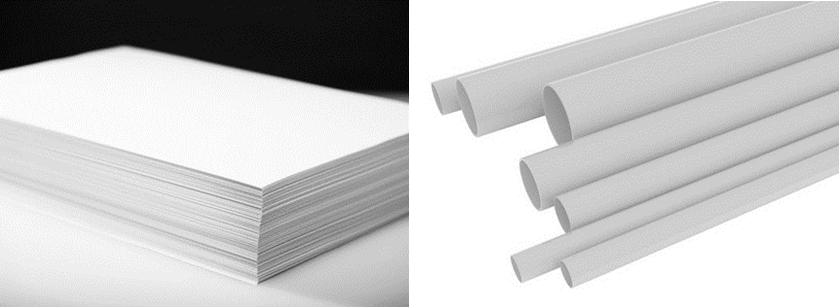Summary: As the Titanium Dioxide
industry in China has progressed, the country has become a significant global
producer. In recent years, the industry has shown a trend of stable
development. Notably, during 2024, there was a consecutive increase in Titanium
Dioxide capacity and output in China.
Titanium Dioxide Production
Surges in China, Dominating Global Market with Robust International Trade Ties
The titanium dioxide (TiO2) industry in China, which originated
in the mid-1950s, has witnessed a remarkable transformation. In 2009, China's
TiO2 capacity soared to 1.8 million tonnes, surpassing the United States to
claim the top spot globally. This leading position has been consistently
maintained in the international market ever since. Recent years have seen
Chinese TiO2 enterprises actively expand their production capabilities,
resulting in a sustained increase in capacity. By 2023, China's TiO2 production
capacity reached 5.5 million tonnes, marking a year-on-year growth of 10.1%.
Notably, this capacity accounted for a staggering 56% of the global market
share in 2023, underscoring China's dominant position in the industry.
Demand for TiO2 Primarily Driven by Coatings Sector
From a downstream perspective, the primary demand for titanium
dioxide (TiO2) in China is driven by the coatings industry, which accounted for
58% of total demand in 2023. As the world's largest producer of coatings,
China's substantial demand for TiO2 serves as a crucial pillar for the
industry's growth. Despite a temporary decline in coatings production in 2022
due to factors such as recurring COVID-19 outbreaks, surging raw material
prices, and weakened downstream consumption, production rebounded in 2023 to
35.77 million tonnes, up 4.5% year-on-year, indicating a continued release of
demand for TiO2. Furthermore, favorable policies introduced by China and its
regions to revive the real estate market are poised to stimulate demand for architectural
coatings, thereby generating significant demand for the TiO2
industry.

Following the coatings
industry, the plastics and paper manufacturing sectors contribute 24% and 10%
respectively to the total demand for TiO2. While plastic production experienced
consecutive declines in 2022 and 2023, indicating a softening demand for TiO2,
China's position as the world's largest paper producer remains intact, with
paper and paperboard production growing consistently in recent years and
reaching 129.65 million tonnes in 2023, up 4.4% year-on-year, which is
favorable for generating additional demand in the TiO2 industry.

Robust Export Demand for
TiO2, with Increasing Export Share
China is a net exporter of TiO2, and in
recent years, export demand has remained robust, driving a continuous rise in
export volumes. By 2023, TiO2 exports reached 1.64 million tonnes, marking a
year-on-year increase of 16.79%. Concurrently, as domestic TiO2 supply capacity
has improved, import volumes have generally declined, reaching 84,500 tonnes in
2023, a year-on-year decrease of 31.36%. Notably, the proportion of TiO2
exports to total production in China has been rising steadily, from 28.92% in
2017 to 39.46% in 2023. This trend underscores the growing influence of
international market demand on China's TiO2 industry.
About CCM:
CCM is the leading market intelligence provider for China’s agriculture, chemicals, food & feed and life science markets. Founded in 2001, CCM offers a range of content solutions, from price and trade analysis to industry newsletters and customized market research reports. CCM is a brand of Kcomber Inc.
For more information about CCM, please visit www.cnchemicals.com or get in touch with us directly by emailing econtact@cnchemicals.com or calling +86-20-37616606.